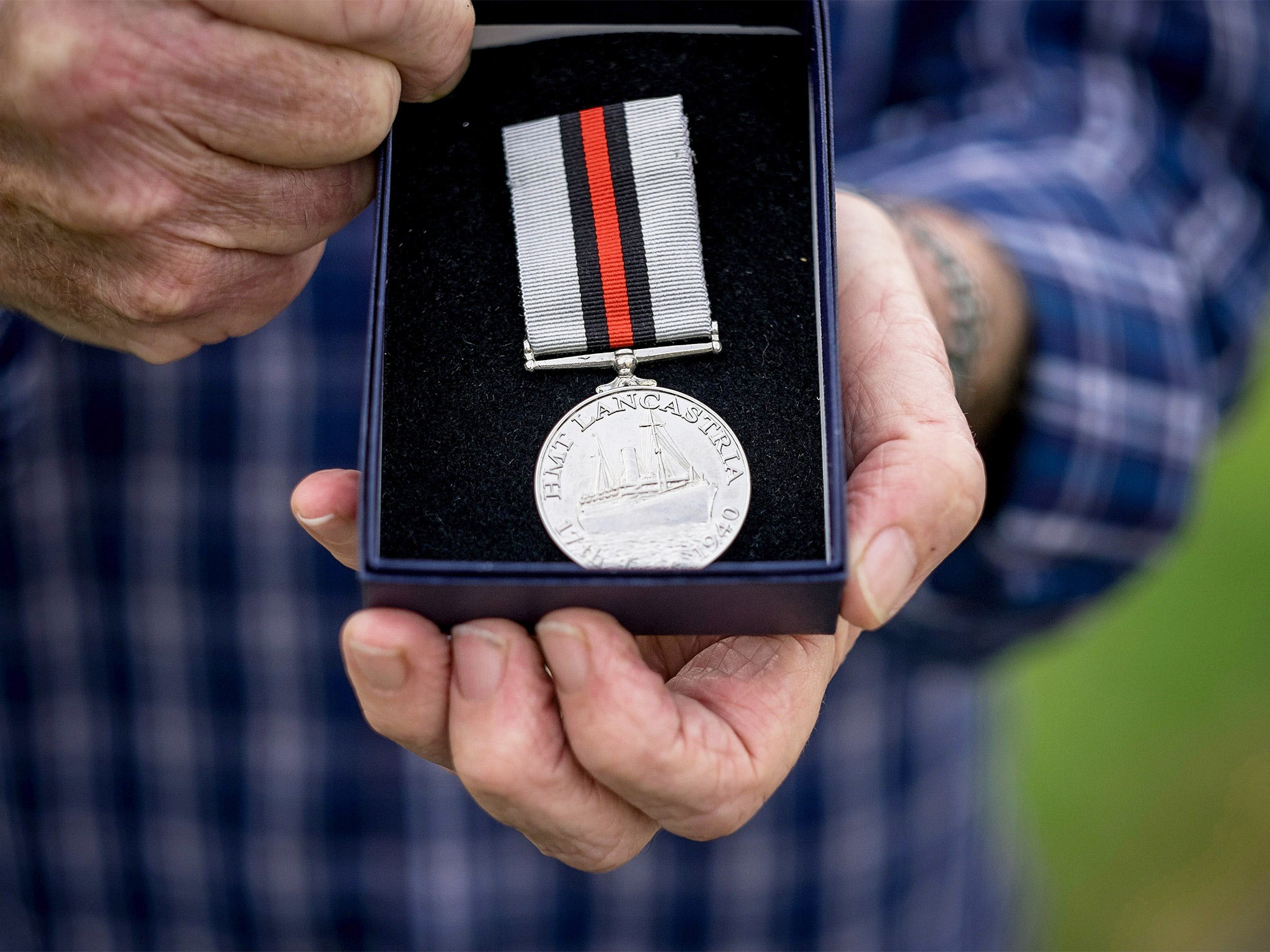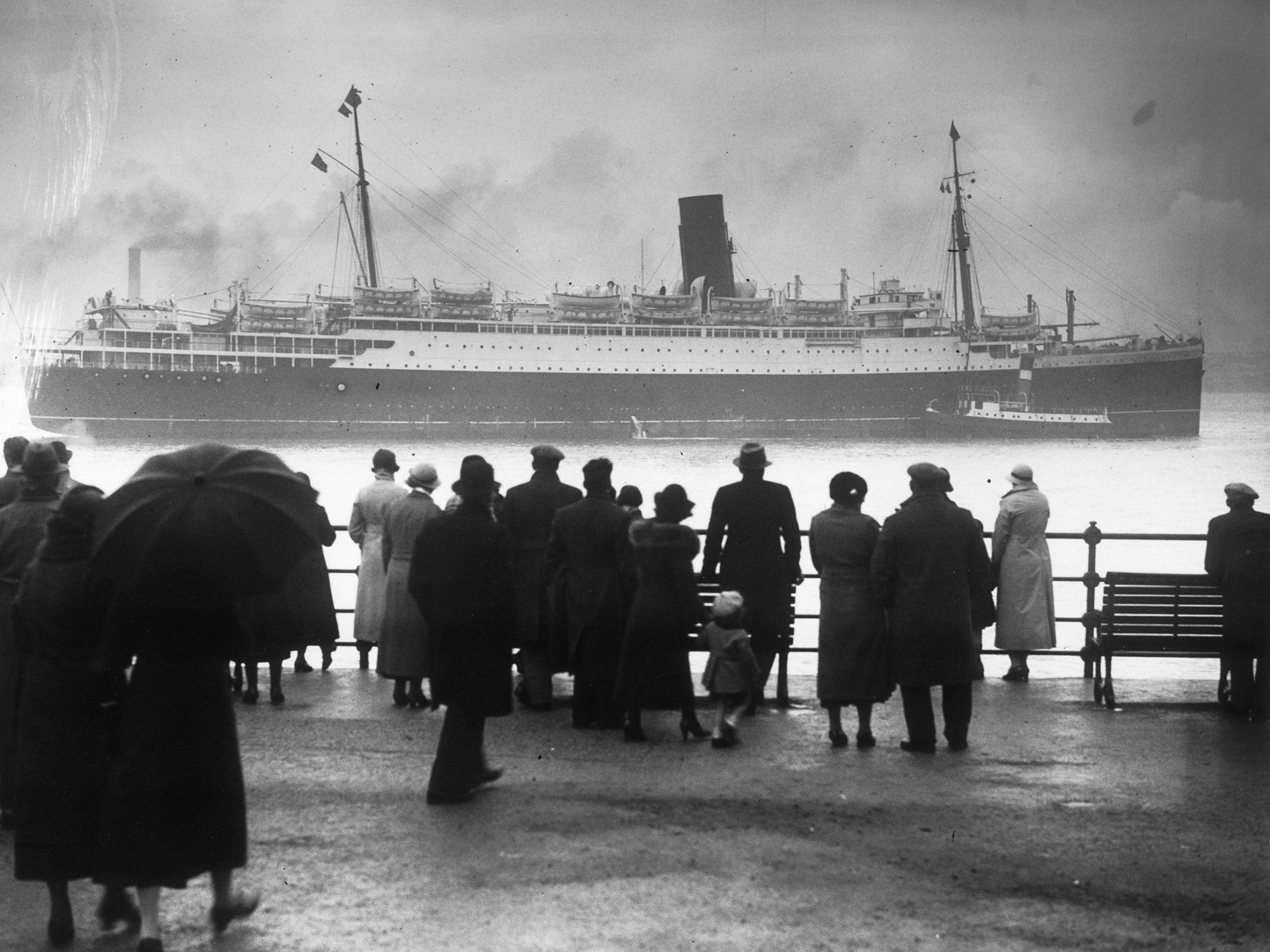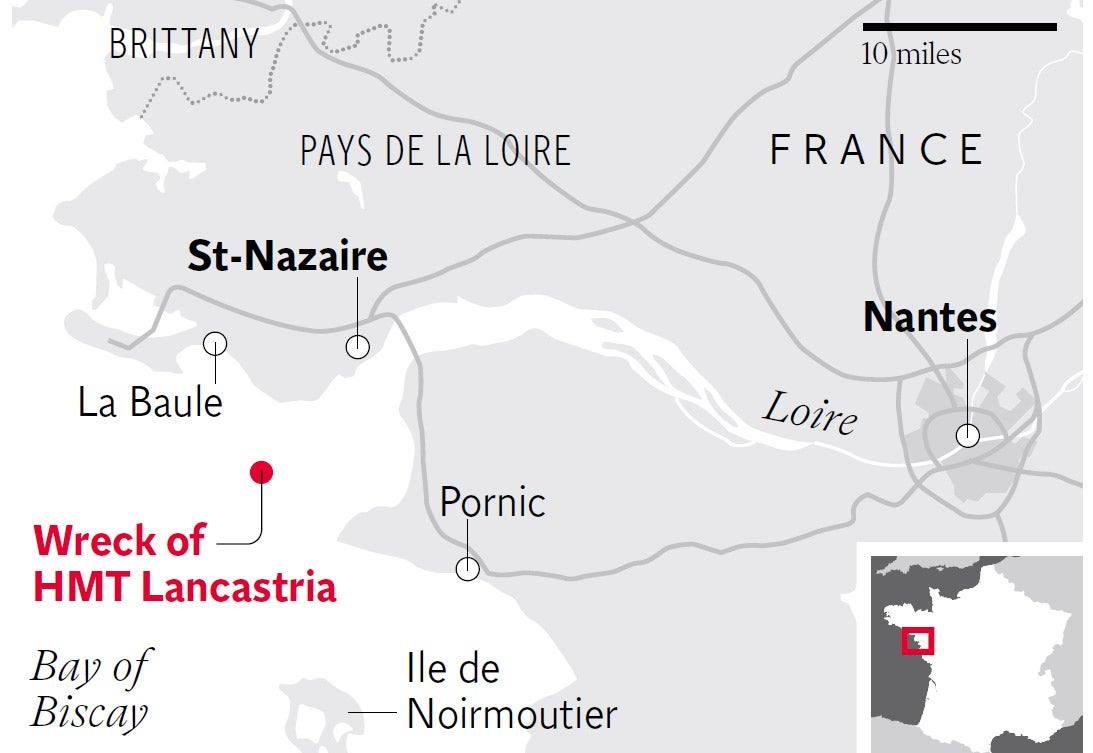HMT Lancastria: Families still refused memorial for Britain's worst sea disaster 75 years on
An estimated 4,000 people died when the vessel was bombed in 1940

Your support helps us to tell the story
From reproductive rights to climate change to Big Tech, The Independent is on the ground when the story is developing. Whether it's investigating the financials of Elon Musk's pro-Trump PAC or producing our latest documentary, 'The A Word', which shines a light on the American women fighting for reproductive rights, we know how important it is to parse out the facts from the messaging.
At such a critical moment in US history, we need reporters on the ground. Your donation allows us to keep sending journalists to speak to both sides of the story.
The Independent is trusted by Americans across the entire political spectrum. And unlike many other quality news outlets, we choose not to lock Americans out of our reporting and analysis with paywalls. We believe quality journalism should be available to everyone, paid for by those who can afford it.
Your support makes all the difference.It was the largest loss of life in British maritime history, with more lives lost than in the Titanic and Lusitania disasters combined. It was also the largest loss of life from a single engagement for British forces in the Second World War – but chances are you’ve never heard of the tragedy that befell the thousands of people on HMT Lancastria.
In the early hours of 17 June 1940, thousands of military personnel and civilians being evacuated from France climbed aboard a 16,000-ton Cunard liner anchored a few miles outside the French harbour of St Nazaire.
The vessel, which was built on the River Clyde in Glasgow, launched as a cruise ship known as Tyrrhenia in 1920 and was taken over as a troop ship in 1939, when it was renamed Lancastria.

It was thought to be carrying more than 6,000 people, including women and children – though some estimates are as high as 9,000. Just before 4pm, the Lancastria was hit by bombs from German aircraft. The ship sank rapidly, resulting in the deaths of an estimated 4,000 people.
Ahead of the 75th anniversary of the tragedy on Wednesday relatives of those who were onboard have condemned the Ministry of Defence for failing to commemorate their sacrifice.
In 2008, the Scottish Government commissioned a medal to honour survivors and descendants of those who lost their lives. But the UK Government has remained resolutely silent.

One of roughly 2,500 people who survived the disaster was Sgt William George Buss, then a 27-year-old from Bath serving with the Royal Army Ordinance Corps. His son, Tony Buss, 75, has expressed disappointment in the UK Government.
“Seventy-five years ago, a lot of men put their lives on the line doing what they were told and died. This is a generation of people to whom this country owes a huge debt,” Mr Buss told The Independent. “They deserve some acknowledgement after all these years.”
Mark Hirst, whose grandfather Walter Hirst, from Dundee served with the Royal Engineers, also survived, said: “I think the reason for that is that no amount of spin or propaganda can change the fact that the loss of the Lancastria was a major blow for Britain at that time in the war. The story doesn’t quite fit the ‘grand narrative’ of that period.”

The 45-year-old co-founder of the Lancastria Association of Scotland added: “The MoD has consistently declined to honour or commemorate the Lancastria… They have dismissed the efforts of families and survivors for years, decades even.
“The Scottish Government has shown a clear lead and many are disappointed the British Government appears so sanguine about this.”
A spokeswoman for the MoD said: “There is no formal event being organised by the MoD.” She added the Government did not commemorate events “willy nilly”.
She later added: “The sinking of the HMT Lancastria remains the United Kingdom’s greatest maritime disaster and, although it occurred 75 years ago this week, the sacrifice of many thousands of servicemen and civilians, and the fortitude of those who were saved that day, must never be forgotten.
“The crew are honoured by memorials in Glasgow, where the ship was built, in St Nazaire, and in the National Memorial Arboretum.”
Join our commenting forum
Join thought-provoking conversations, follow other Independent readers and see their replies
Comments